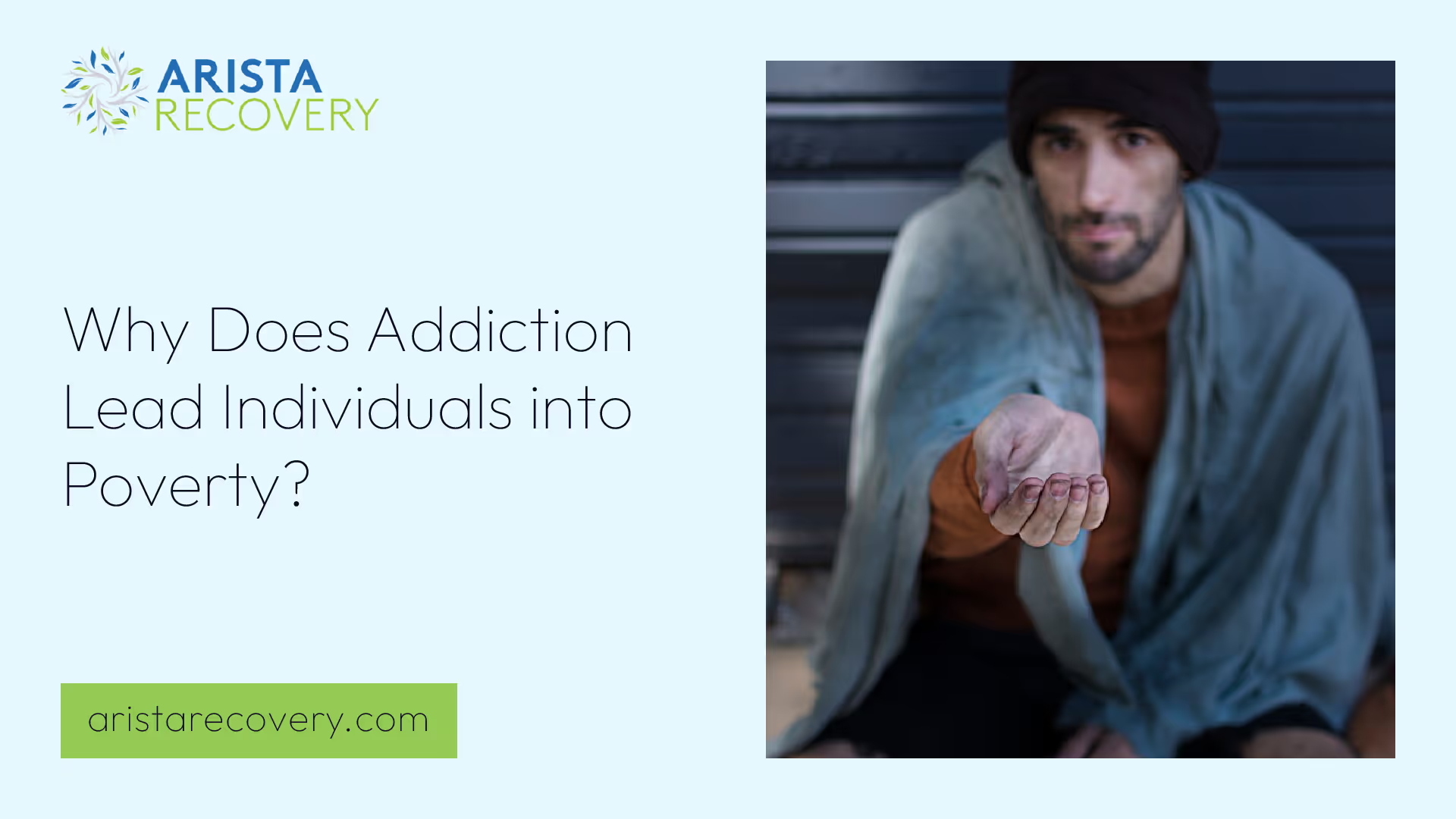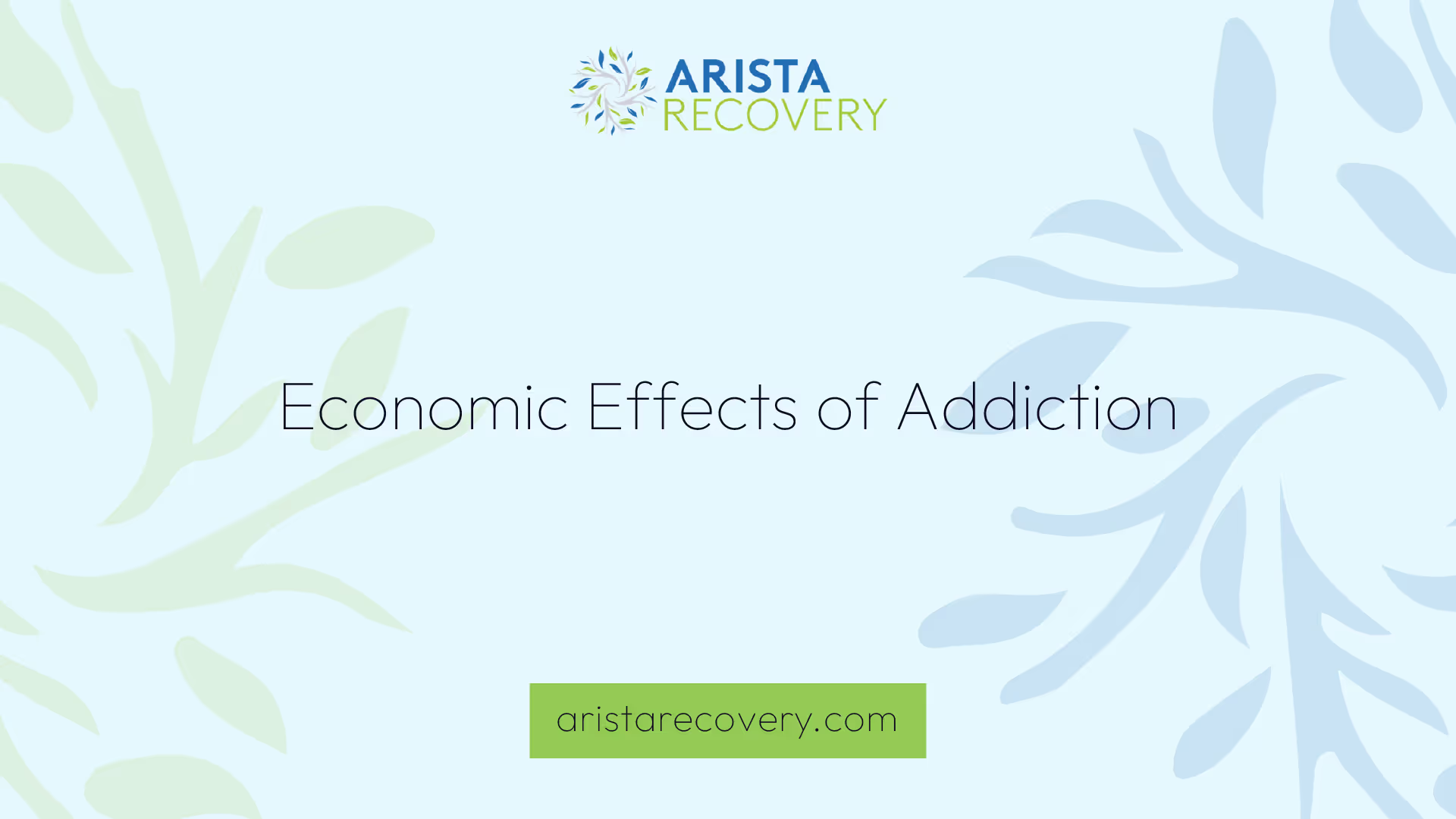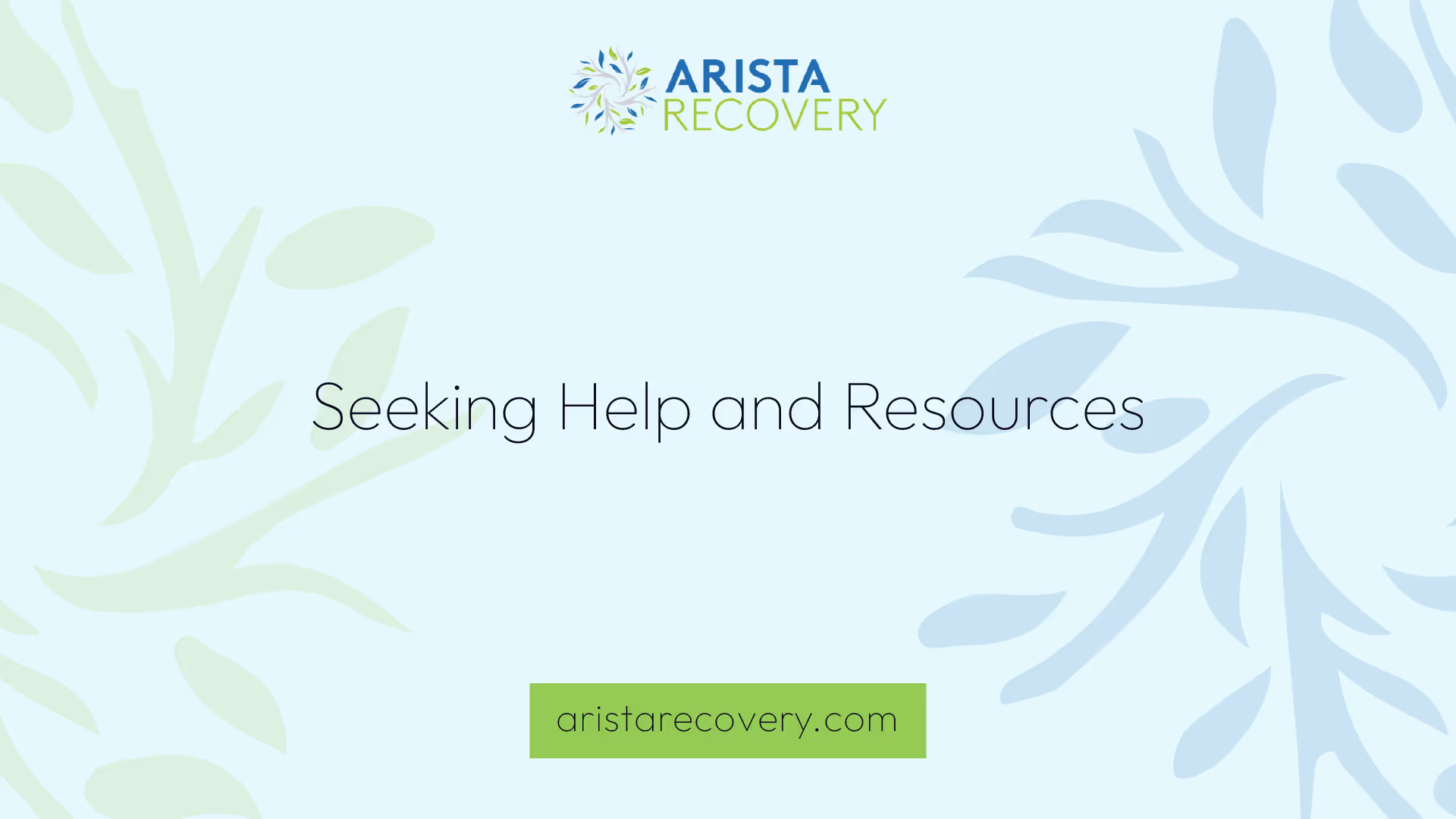Why Does Addiction Lead Individuals into Poverty?


Understanding Addiction and Poverty
Addiction, in its various forms, can have a profound impact on an individual's financial stability. This article aims to provide an understanding of the relationship between addiction and poverty, offering a comprehensive answer to the question: "Why does addiction lead to poverty?"
Relationship Overview
The relationship between addiction and poverty is complex and multifaceted. It's essential to understand that addiction is not only a health issue but also a financial one. It often leads to significant financial problems, forcing individuals into a vicious cycle of poverty.
Addiction can drain an individual's resources, with money being spent to sustain the addiction instead of being used for essential needs like food, housing and healthcare. Furthermore, addiction can lead to lost job opportunities and income disruption due to impaired decision-making, absenteeism, decreased productivity, and increased healthcare costs. All these factors can exacerbate financial instability, often leading to poverty.
Additionally, addiction's impact is not limited to the individual suffering from it. It can also dramatically affect their families, who may need to bear the financial burden of treatment costs, legal issues, and lost income. The financial stress, coupled with the emotional and social strain of dealing with addiction, can push families into poverty as well.
This complex interplay between addiction and poverty underscores the need for comprehensive solutions that address both the health and economic aspects of addiction. For more on this, explore our article on addiction and financial problems.
Impact on Individuals
The impact of addiction on an individual's financial status can be severe and long-lasting. Beyond the immediate cost of sustaining the addiction, individuals may face other financial barriers like difficulty finding and maintaining employment, increased healthcare costs, and legal issues.
Moreover, addiction can lead to impaired judgment and decision-making abilities, which may exacerbate financial difficulties. Individuals may engage in risky financial behaviors, such as overspending or borrowing money, to fund their addiction. This can lead to a cycle of debt and financial instability that is difficult to break.
The financial consequences of addiction can also have a significant emotional and psychological impact. Financial stress can lead to feelings of shame, guilt, anxiety, and depression, which can further fuel the cycle of addiction.
Understanding the financial impact of addiction is a crucial step towards addressing the issue. For more insights on how addiction affects finances, visit our article on how does addiction affect finances.
Factors Contributing to Financial Problems
Understanding the factors that contribute to financial problems can help provide a clearer picture of how addiction can lead to poverty. This section delves into the influence of addiction on an individual's financial standing and the behavioral patterns that can aggravate the situation.
Addiction's Influence
Addiction can have a profound effect on an individual's financial status. The direct costs of sustaining an addiction, whether it's to substances or behaviors, can quickly deplete an individual's resources. This includes the costs of obtaining the addictive substance or engaging in the addictive behavior, as well as the expenses related to healthcare and legal issues arising from the addiction.
Beyond the direct costs, addiction can interfere with an individual's ability to work or maintain a job. This can lead to reduced income or job loss, further exacerbating financial difficulties.
Lastly, addiction can also lead to poor financial decisions. As the addiction progresses, an individual may prioritize their addiction over other financial obligations, leading to missed payments, mounting debt, and potential legal issues.
For a deeper dive into how addiction affects finances, see our article on how does addiction affect finances.
Behavioral Patterns
There are several behavioral patterns associated with addiction that can contribute to financial problems. For instance, individuals with addiction may exhibit impulsive behavior, leading to reckless spending or poor financial decisions. This impulsivity can be particularly detrimental when combined with an addiction to spending money, often leading to significant debt [1].
Moreover, individuals with addiction may struggle with planning and organization, making it difficult to manage finances effectively. They may also struggle with denial about their financial situation, avoiding dealing with money problems until they become critical.
Lastly, the stress and anxiety associated with addiction can lead to avoidance behavior, where the individual avoids thinking about or dealing with their financial problems. This can delay the resolution of these problems and potentially make them worse over time.
For more information about the behavioral patterns that can contribute to financial problems in addiction, see our article on what causes money addiction?.
Understanding these factors can help individuals and their loved ones recognize the signs of financial problems due to addiction and seek the necessary help. With the right support and resources, it is possible to break the cycle of addiction and start the journey towards financial recovery after addiction.

Economic Effects of Addiction
The financial consequences of addiction are profound and far-reaching, contributing to a vicious cycle of poverty and substance abuse. When seeking to understand the question, "why does addiction lead to poverty?", it's important to consider two key factors: income disruption and employment challenges.
Income Disruption
Addiction can cause significant income disruption, exacerbating financial hardship for individuals and their families. The cost of maintaining an addiction can quickly deplete an individual's resources, leaving them with little to no disposable income. Furthermore, addiction often leads to erratic behavior and poor decision-making skills, which can result in impulsive spending and financial mismanagement.
As the addiction progresses, individuals may resort to selling their belongings or taking out high-interest loans to fund their addiction. This can lead to a downward spiral of debt and financial instability, increasing the risk of poverty. For a detailed discussion on how addiction affects finances, refer to our article on how does addiction affect finances.
Moreover, individuals struggling with addiction may also experience a phenomenon known as "money addiction," where they become excessively preoccupied with acquiring and spending money. This can further exacerbate their financial problems and deepen the cycle of poverty. For more information on money addiction, visit our article is it possible to be addicted to spending money.
Employment Challenges
Alongside income disruption, addiction can also lead to employment challenges, further deepening the financial distress experienced by individuals and their families. Substance abuse can impair an individual's cognitive function, physical health, and overall work performance, making it difficult for them to maintain steady employment.
In many cases, addiction can lead to job loss due to poor performance, frequent absences, or workplace accidents. Furthermore, having a history of addiction can make it challenging for individuals to find new employment, as many employers may be hesitant to hire someone with a substance abuse problem.
Even those who manage to maintain their employment may face reduced earning potential, as addiction can impede their ability to perform at their best and advance in their careers. This can result in lower wages and fewer opportunities for economic growth, pushing individuals further into poverty.
The economic effects of addiction are a critical aspect of understanding the intersection between addiction and poverty. By acknowledging these challenges, individuals can better navigate their recovery journey and seek the necessary support to rebuild their financial stability. For resources on financial recovery after addiction, refer to our article on how to financially recover after addiction.
Financial Management and Addiction
The struggle against addiction is not just a personal battle but it also impacts finances. This section will focus on the financial management challenges associated with addiction, specifically, the difficulties in budgeting and the accumulation of debt.
Budgeting Struggles
When an individual is dealing with addiction, budgeting can become a significant challenge. The cost of maintaining an addiction, whether it's to substances or behaviors, can rapidly drain personal resources. Often, funds that should be allocated for essential expenses like housing, utilities, and food are instead used to sustain the addiction.
This financial mismanagement can lead to missed payments, late fees, and an overall lack of financial stability. The struggle to maintain a budget while combating addiction can exacerbate the cycle of poverty, further entrenching the individual in financial hardship. For more information on how addiction affects finances, visit our dedicated article.
Debt Accumulation
As the struggle with budgeting intensifies, so too does the likelihood of accumulating debt. The financial strain caused by addiction can lead individuals to resort to borrowing money, often from multiple sources, to cover their expenses.
This borrowing can take many forms, from personal loans from friends and family to credit card debt and payday loans. As debt increases, so too does the pressure to repay, which can further fuel the addictive behaviors as a form of escape or coping mechanism.
Excessive debt can also lead to long-term financial consequences, such as damaged credit scores and legal issues. These challenges can create additional barriers to gaining stable employment and housing, further perpetuating a cycle of poverty and addiction.
Understanding the financial consequences of addiction is a crucial part of the recovery process. Recognizing the financial struggles associated with addiction can help individuals and their loved ones seek out appropriate financial and addiction recovery resources. In our next section, we will explore available help and resources for those looking to break the cycle of addiction and poverty.
For those questioning if it's possible to be addicted to money itself, our article on money addiction provides useful insights. If you're searching for guidance on how to financially recover after dealing with addiction, our resource on financial recovery after addiction may serve as a helpful guide.

Seeking Help and Resources
When faced with the question "why does addiction lead to poverty?", it becomes evident that addiction and financial problems are closely intertwined. This association demonstrates the necessity of seeking help and resources to break free from this cycle.
Support Services
Support services play a pivotal role in helping individuals overcome addiction and manage their financial circumstances. These services provide counseling, therapy, financial planning advice, and other forms of assistance that can help individuals navigate the challenges of addiction and poverty. Support services work to address both the addiction and its financial consequences, helping individuals regain control over their lives and their finances (Doe, 2018).
Accessing these services can often be the first step towards recovery. They provide a safe space for individuals to discuss their problems, learn about different coping strategies, and gain access to resources that can help them on their journey to recovery. Furthermore, these services can also connect individuals with community programs that provide financial assistance, job training, and other resources (Smith, 2019). Read more about the intricate relationship between addiction and financial problems for greater insight.
Recovery Programs
Recovery programs are also an essential component of addiction treatment. These programs offer a structured environment where individuals can learn about the nature of addiction, develop coping mechanisms, and work towards achieving sobriety (Johnson, 2017).
In addition to addressing the addiction itself, many recovery programs also provide financial education and counseling. These services can help individuals understand the impact of addiction on their financial situation, learn about budgeting and debt management, and develop a plan for rebuilding their financial stability after addiction (Brown, 2020).
Recovery programs can also provide individuals with the skills and resources they need to secure stable employment, further aiding in their financial recovery. This is a critical step in breaking the cycle of addiction and poverty, and rebuilding one's life after addiction. For more information on recovering financially after addiction, visit our article on how to financially recover after addiction.
Seeking help and resources is a crucial step in overcoming the financial struggles associated with addiction. By engaging with support services and recovery programs, individuals can gain the tools and knowledge they need to break free from the cycle of addiction and poverty.
Breaking the Cycle
One of the most challenging aspects of addiction recovery is overcoming the financial struggles that are often associated with addiction. Understanding 'why does addiction lead to poverty?' is a key step in breaking the cycle of addiction and poverty. This section discusses ways to overcome financial struggles and rebuild financial stability during recovery.
Overcoming Financial Struggles
Overcoming financial struggles is a crucial aspect of recovery for individuals who have been pushed into poverty due to addiction. It involves addressing the financial problems that have arisen as a result of addiction and developing strategies to manage debt (Smith & Johnson, 2018).
Several strategies can be employed to overcome financial struggles. These could include budgeting, debt consolidation, and seeking financial advice how does addiction affect finances. A study by Patel et al. (2017) suggests that the adoption of effective financial management strategies can significantly aid in overcoming addiction-related debt.
Support services can also play a vital role in helping individuals overcome their financial struggles. These services can provide financial counseling, assistance in finding employment, and help in accessing government benefits (Thompson & White, 2016). For more information on the types of support services available, visit our page on addiction and financial problems.
Rebuilding Financial Stability
Once the immediate financial struggles have been addressed, the next step in breaking the cycle of addiction and poverty is to rebuild financial stability. This involves creating a long-term financial plan, developing good financial habits, and building a safety net for future financial emergencies (Brown et al., 2019).
Rebuilding financial stability requires discipline, patience, and consistent effort. It may involve setting financial goals, saving for emergencies, and investing for the future. The process can be challenging, particularly for those in early recovery, but it is an essential step towards achieving financial independence and breaking the cycle of addiction and poverty.
According to a comprehensive guide by Garcia & Lee (2020), engaging in financial education programs can significantly improve financial literacy and confidence, which can in turn aid in rebuilding financial stability. These programs can provide valuable knowledge on topics such as budgeting, debt management, and investing.
Rebuilding financial stability after addiction is a process that requires time and commitment, but it is achievable with the right resources and support. For more guidance on this topic, visit our page on how to financially recover after addiction.
By taking steps to overcome financial struggles and rebuild financial stability, individuals recovering from addiction can break the cycle of poverty and move towards a more secure and stable future.
References
[1]: https://www.aristarecovery.com/blog/is-it-possible-to-be-addicted-to-spending-money
[3]: https://www.addictioncenter.com/addiction/low-income-americans/
You’re not alone in this.
When mental health challenges and addiction intersect, it can feel isolating. At Arista, we offer compassionate, evidence-based, and trauma-informed care to help you heal, grow, and move forward.
You’re not alone in this.
When mental health challenges and addiction intersect, it can feel isolating. At Arista, we offer compassionate, evidence-based, and trauma-informed care to help you heal, grow, and move forward.
Support that moves with you.
You’ve taken a brave first step. At Arista Recovery, we’re here to help you continue with best-in-class care designed for long-term healing and support.
.webp)






